Photo: Jimmy Fontaine
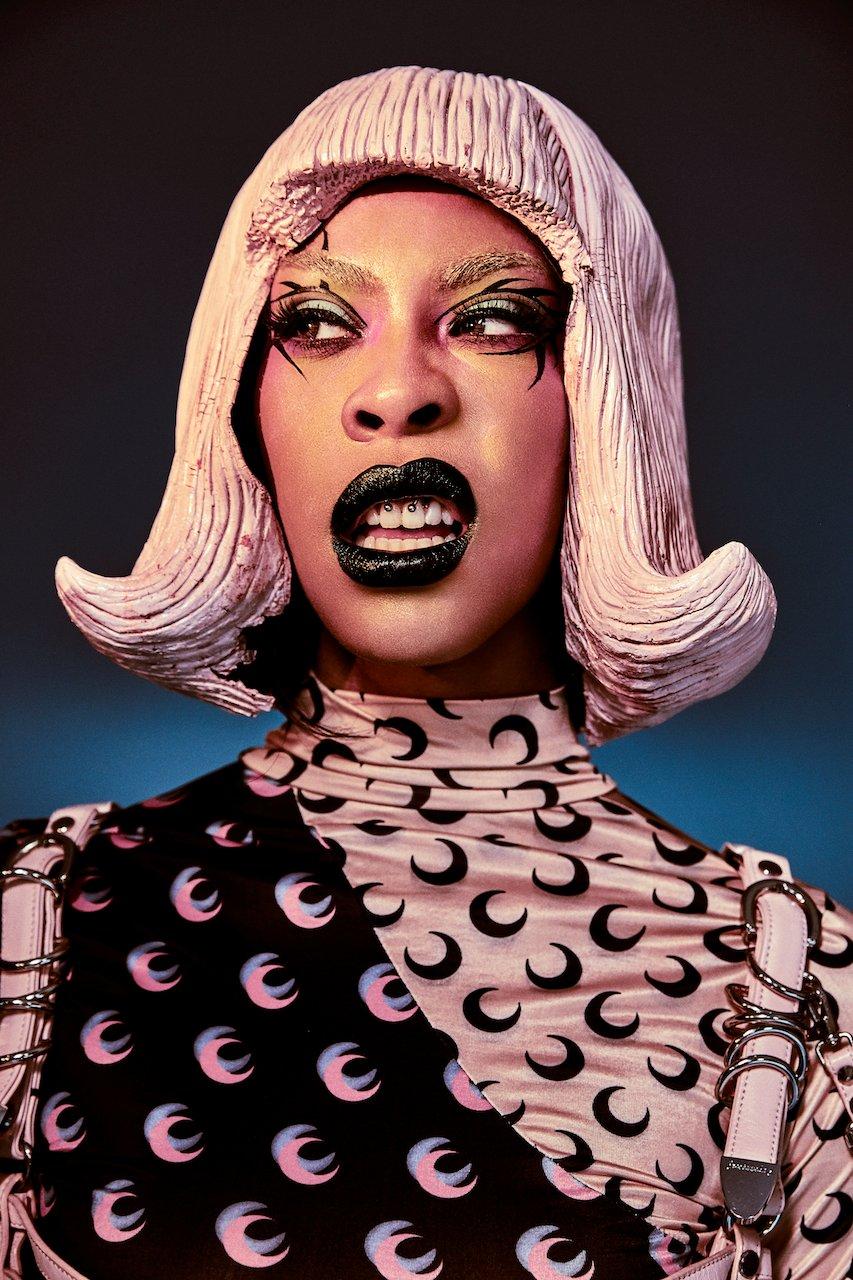
Rico Nasty
news
Rico Nasty On Song With Flo Milli, Never Leaving The Vibes In The Studio & Relationship With Fans
In a casual conversation with on-air personality Little Bacon Bear, presented by GRAMMY U, Rico Nasty dropped gems about being in the studio, rapper ego and new music
Rico Nasty, the rapper from Baltimore, chatted with on-air personality Little Bacon Bear in an Up Close & Personal conversation presented by GRAMMY U. During the casual convo, Rico touched on several topics in her career, including what her fans mean to her.
"Listening to them got me very far," she said, explaining how her fans have shaped her career. She added that although her fans are her ride or die, she corrects them when they get out of line.
"Sometimes I don’t correct them publicly, but I will definitely hit them on the side and be like, yo, you’re doing too much. This is making me uncomfortable. I don’t like this," she shared.
<style>.embed-container { position: relative; padding-bottom: 56.25%; height: 0; overflow: hidden; max-width: 100%; } .embed-container iframe, .embed-container object, .embed-container embed { position: absolute; top: 0; left: 0; width: 100%; height: 100%; }</style><div class='embed-container'><iframe src='https://www.youtube.com/embed/CakWqaFEVww' frameborder='0' allowfullscreen></iframe></div>
Rico also got candid about how insensitive media can be to artists’ traumatic experiences. Specifically, Rico mentioned how other women rappers' traumatic experiences have been made interview points during some of her conversations with media:
"When they see people go through stuff in this industry, they will ask a person that doesn’t like that person, and they know don’t like that person, how they feel about it, and I think that’s f***ed up."
She added: "That’s really a person’s life, and I feel like the industry and the interviewers, they’re not sensitive about that anymore … if they want to ask you some invasive a** s*** they just going to ask you and I feel bad for my young women coming up because I don’t ever want them to get put in a trick bag where they look back at an interview, like, 'Why the f***did I say that?'"
Watch the full interview above to hear Rico talk about rapper ego, why it’s important to be a "ladder" in the industry, how women rappers are thriving, industry advice, and new music, including how her collab with fellow rapper Flo Milli will appear on her next album.

Photo: Amy Lee
list
5 Rising L.A. Rappers To Know: Jayson Cash, 310babii & More
From San Diego to the Bay Area, Seattle and beyond, the West Coast bursts with talent. Los Angeles is at the heart of this expanse, and these five rappers are just a few who are showcasing the vibrant sounds of West Coast hip-hop.
GRAMMY winners Kendrick Lamar and Mustard have long repped their California roots. Earlier this summer, their powerhouse anthem "Not Like Us" brought West Coast rap back to its roots and shone a global spotlight on the scene.
Lamar and Mustard are at the forefront of a renaissance in West Coast rap. Their shared roots in Southern California cities — Mustard from Los Angeles and Kendrick from Compton — adds authenticity and resonance to their partnership. Their undeniable chemistry was on display in the video for "Not Like Us," which received a million views less than an hour after its release.
Mustard's signature beats and Lamar's profound lyricism has resurfaced the sound and culture that makes West Coast rap so unique and paved the way for a new generation of artists. All signs suggest that another impactful collaboration may appear on Mustard's upcoming album, Faith of A Mustard Seed.
Learn more: A Guide To Southern California Hip-Hop: Definitive Releases, Artists & Subgenres From L.A. & Beyond
Kendrick Lamar headlined the electrifying Pop Out concert on Juneteenth, which also featured sets from Mustard and DJ Hed. The event saw a handful of L.A. rappers, opening for Lamar in a showcase of the vibrant talent that defines the region's rap scene.
The West Coast is a vast reservoir of talent, stretching from the Bay Area to Seattle. At the heart of this creative expanse is Los Angeles, which brings fresh perspectives, innovative styles, and renewed energy to hip-hop, ensuring the genre thrives. With the stage set for these newcomers to shine, it's the perfect time to take a closer look at some of the rising talents poised to impact the rap scene. While this list only scratches the surface, it offers a glimpse into the diverse and exciting talent from SoCal, the epicenter of the West.
Blxst
Arising from Los Angeles, Blxst initially played the background as a producer but soon demonstrated his ability to excel across all facets of music creation. Blxst's breakout moment came with his platinum-certified single "Chosen," which solidified his place in the music industry. His collaboration on Kendrick Lamar's "Die Hard" from Mr. Morale And The Big Steppers further showcased his skill for crafting hooks that elevate tracks, resulting in two GRAMMY nominations.
As he prepares to release his debut album, I'll Always Come Find You on July 19, Blxst stands at a pivotal point in his career. With a great resume already to his name, his forthcoming album promises to showcase his undeniable talent and leave a lasting impact on the West Coast music scene.
Bino Rideaux
Bino Rideaux is a South Central native and frequent collaborator with the GRAMMY-winning rapper Nipsey Hussle. He is the only artist to have a joint project with Hussle, No Pressure, released before the prolific rapper's untimely death. Rideaux has hinted at having a treasure of unreleased music with Hussle, saved for the perfect moment and album.
Rideaux is known for creating tracks that get the city outside and dancing. He has made three beloved projects with Blxst, titled Sixtape, Sixtape 2, and Sixtape 3 resulting in sold-out shows and a special place in West Coast Rap fans' hearts. Endorsed by industry heavyweights like Young Thug, Rideaux continues to carve his path at his own pace. His journey is nothing short of a marathon, echoing the enduring legacy of his mentor.
Kalan.FrFr
Kalan.FrFr, whose name stands for "For Real For Real," is an artist whose music is as genuine as his name suggests. Growing up in Compton and Carson, Kalan.FrFr has always stayed true to his roots, and exudes the unyielding confidence essential to making it in the City of Angels.
His breakthrough mixtape, TwoFr, showcased his ability to shine without major features, delivering verses with catchy hooks and melodic rap. He's shown he's not confined to one sound, delivering vulnerable tracks like "Going Through Things'' and "Never Lose You." His EP Make the West Great Again, Kalan.FrFr both proves his loyalty to his origins and highlights his versatility. Kalan.FrFr's signature punch-in, no-writing-lyrics-down style keeps his fans on their toes, ensuring that whatever comes next is unpredictable but authentic.
Jayson Cash
Jayson Cash, a rapper hailing from Carson — the same city as TDE artist Ab-Soul — stays true to West Coast rap, from his lyrics to his beat selection. Listening to Jayson Cash's music is like diving into a vivid life narrative. His prowess as a lyricist and storyteller shines through in every verse. He gives his fans an insight into his journey, making it a relatable music experience.
Cash made waves with his debut mixtape, Read The Room, and scored a Mustard beat on the song "Top Down." Two years later, their collaboration continues, with Cash writing on Mustard's upcoming album. Though often seen as an underdog, Cash is not to be underestimated, earning cosigns from West Coast legends like Suga Free and Snoop Dogg. His latest project, Alright Bet, includes a notable feature from Dom Kennedy.
310babii
310babii has achieved platinum-selling status at just 18 years old, while successfully graduating high school. Yet 310babii's career began in seventh grade, when he recording songs on his phone showing early signs of motivation and creativity. His 2023 breakout hit "Soak City (Do It)" quickly gained traction on TikTok — and caught the ears of Travis Scott and NFL player CJ Stroud.
As the song grew in popularity, it led to a remix produced by Mustard, who invited the Inglewood native to join him onstage during his set at The Pop Out. 310babii's innovative spirit shines through in his distinctive visuals, exemplified by the captivating video for his song "Back It Up." His recent debut album, Nights and Weekends, released in February, underscores his evolving talent and promise within the music industry.
Latest News & Exclusive Videos

Behind Ryan Tedder's Hits: Stories From The Studio With OneRepublic, Beyoncé, Taylor Swift & More

Crowder Performs "Grave Robber"

NCT 127 Essential Songs: 15 Tracks You Need To Know From The K-Pop Juggernauts

5 Rising L.A. Rappers To Know: Jayson Cash, 310babii & More

Why Elliott Smith's 'Roman Candle' Is A Watershed For Lo-Fi Indie Folk
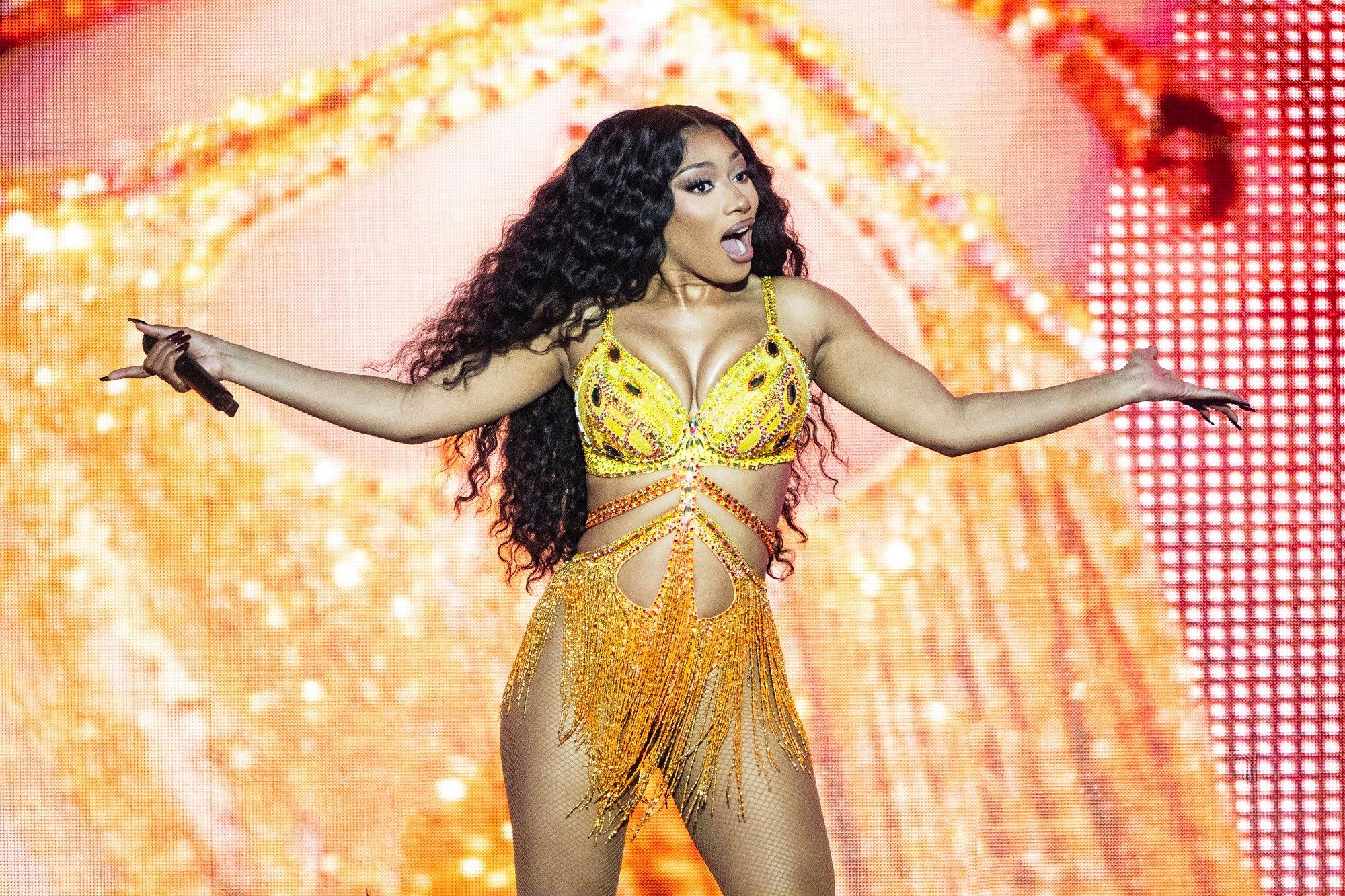
Photo: Erika Goldring/Getty Images
list
6 Takeaways From Megan Thee Stallion's 'Megan': Snakes, Shots & Self-Assurance
From the serpentine theme to Japanese rhyme schemes, Megan Thee Stallion's third album snatches back her own narrative and isn't afraid to take a bite.
Beware of venom: Megan Thee Stallion is not biting her tongue on her new album, simply titled Megan.
The GRAMMY winner's first full-length release in two years is also the first to drop under her own control. Fans have been ready for this release even before the first single, "Cobra," came out in November. The second single, "Hiss," followed in January and brought the star her first No. 1 hit on the Billboard’s Hot 100 and Global 200 charts. These songs, as well as the third single, "BOA," foreshadowed a certain slithery theme that helped shape the album.
Megan was released on June 28 and features guest stars such as GloRilla, Victoria Monét, Big K.R.I.T. and Kyle Richh as well as her longtime ace producers like Juicy J (who made "Hot Girl Summer" among other calling cards) and LilJuMadeDaBeat, who produced Stallion anthems like "Big Ole Freak," "Body" and "Thot S—."
Here’s what we learned from listening and vibing to the latest work by three-time GRAMMY winner Megan Thee Stallion.
A Theme Snakes Through Megan
As could have easily been predicted from the first three singles "Cobra," "Hiss" and "BOA," and now the album track "Rattle," there is a hint of a snake theme that wends its way through the album from beginning ("Hiss") to end ("Cobra").
In several songs, she denounces all the snake behavior that she has encountered from former lovers, friends, and haters who support those who have caused actual harm to her. In the music video for "Cobra," Megan literally sheds her old skin to reveal a shining new layer.
Megan Is Calling The Shots This Time
"I feel like Biggie, 'Who Shot Ya?’/But everybody know who shot me, bitch/ So now, let’s stop speaking on the topic," she rapped in "Who Me (feat. Pooh Shiesty)" off her 2022 album Traumazine. MTS was referencing the July 2020 incident in which rapper Tory Lanez shot her in the foot, and was subsequently charged with assault with a semiautomatic firearm and carrying a loaded, unregistered firearm in a vehicle.
Turns out, she wasn’t done referencing the topic. Now, she’s one taking the shots. MTS takes aim at less-talented women rappers on "Figueroa" (named for a Los Angeles street known for prostitution), and at Lanez on "Rattle," when she suggests that his male supporters should schedule a conjugal visit with him in prison. (Lanez is currently serving a 10-year sentence while simultaneously going through a divorce with wife Raina Chassagne.)
More Megan Thee Stallion News & Videos
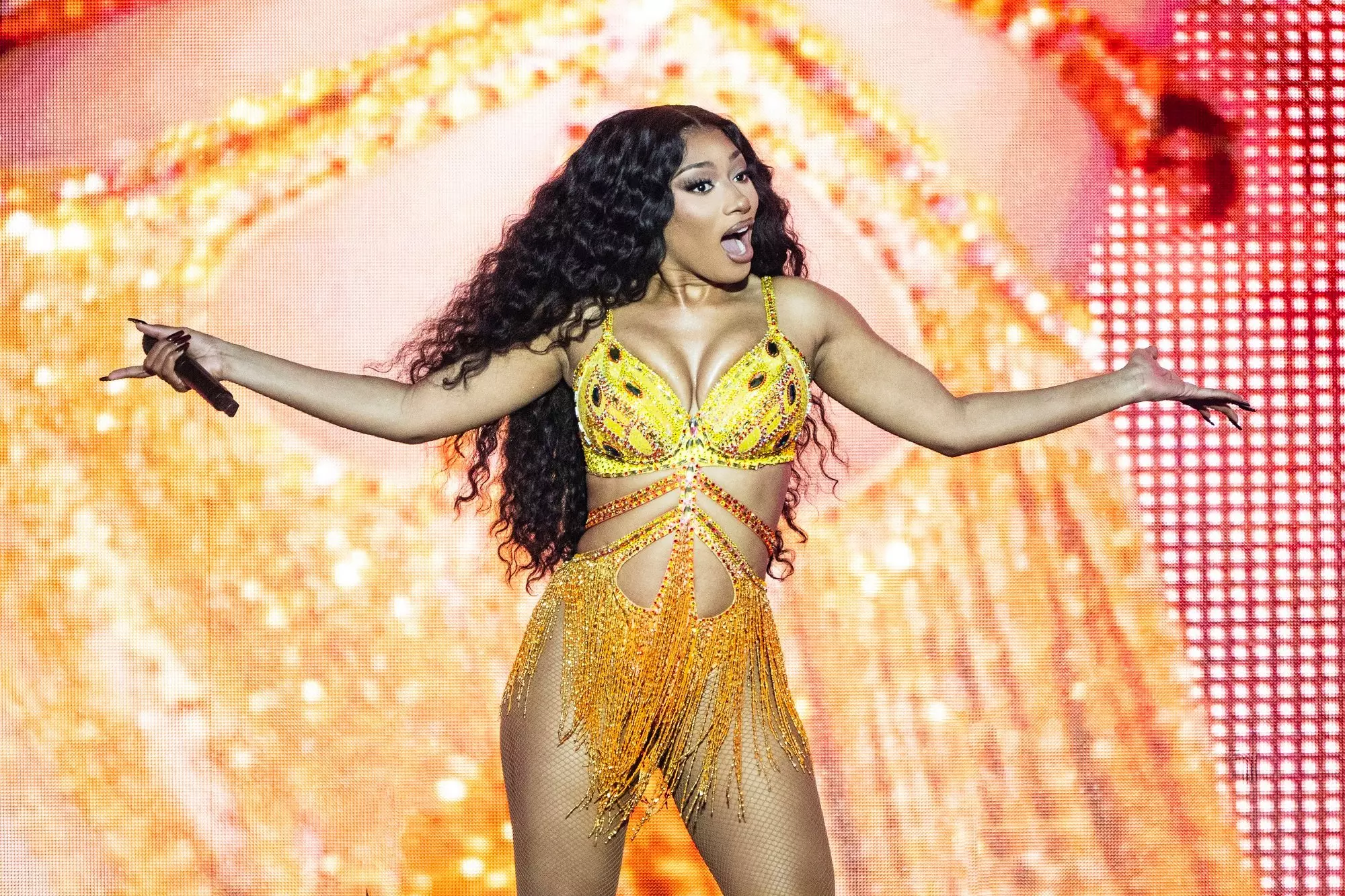
6 Takeaways From Megan Thee Stallion's 'Megan': Snakes, Shots & Self-Assurance
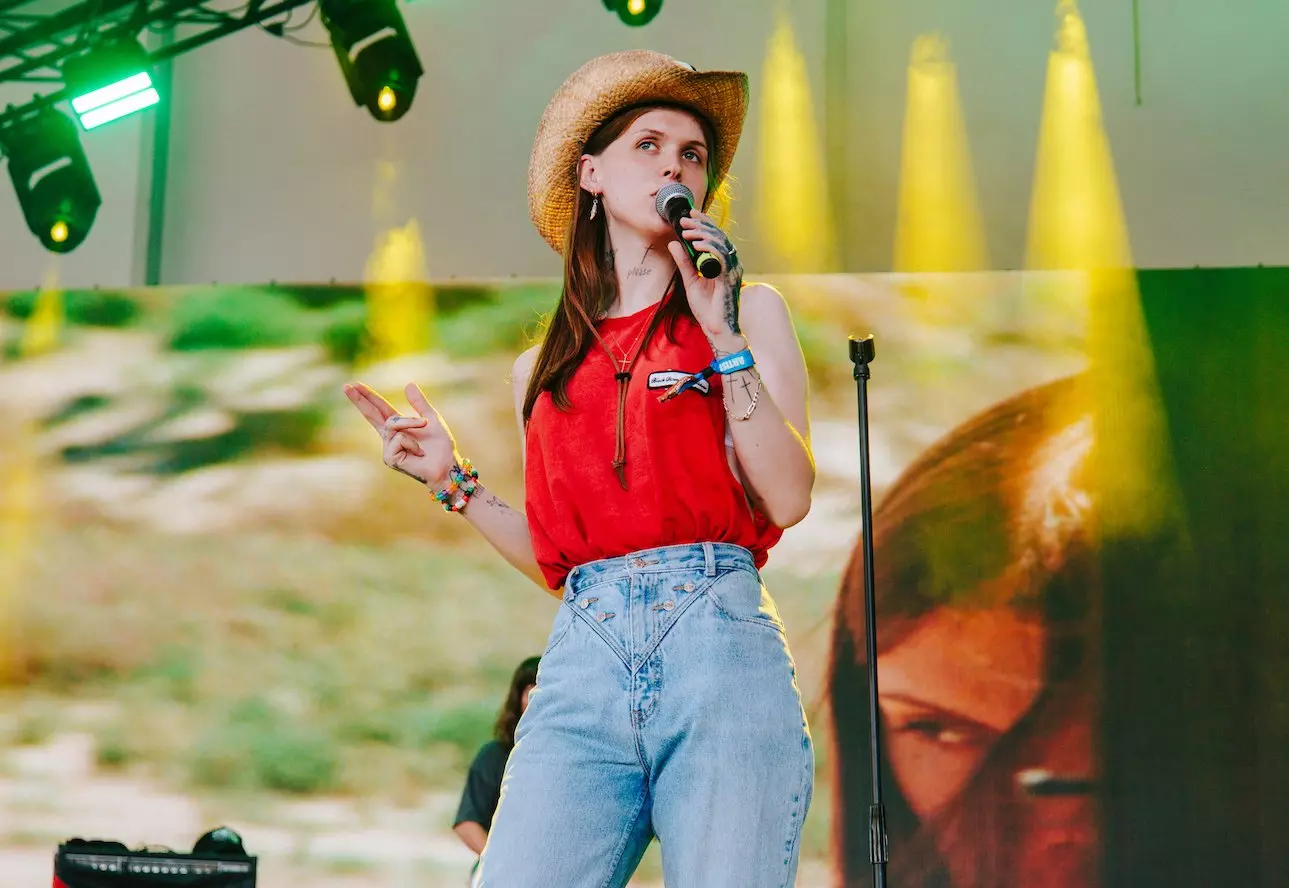
9 Epic Sets From Bonnaroo 2024: Ethel Cain, Melanie Martinez, Megan Thee Stallion & More
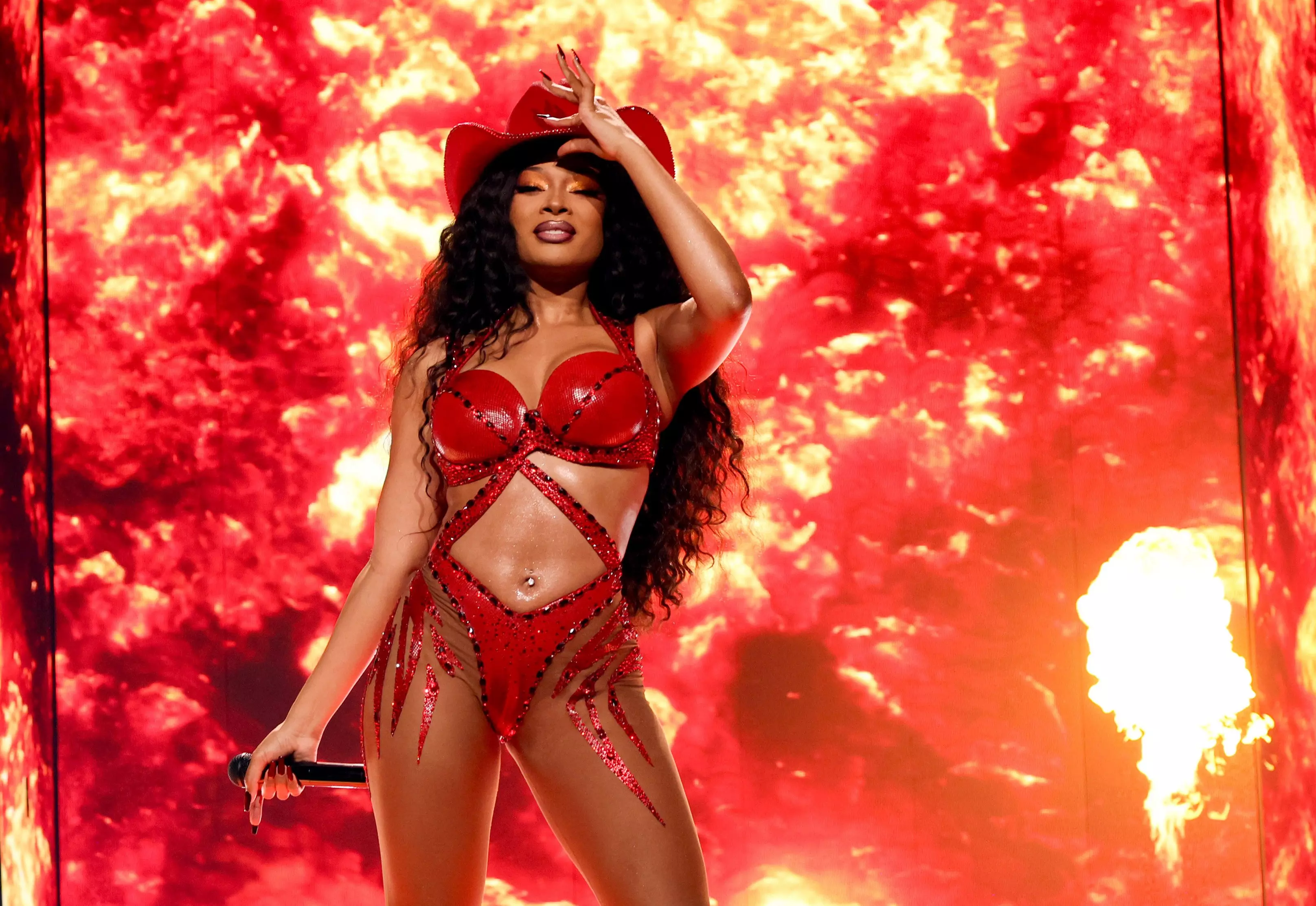
5 Iconic Moments From Megan Thee Stallion's Houston Hometown Shows

Everything We Know About Megan Thee Stallion's New Album 'Megan': Tracklist, Release Date & More
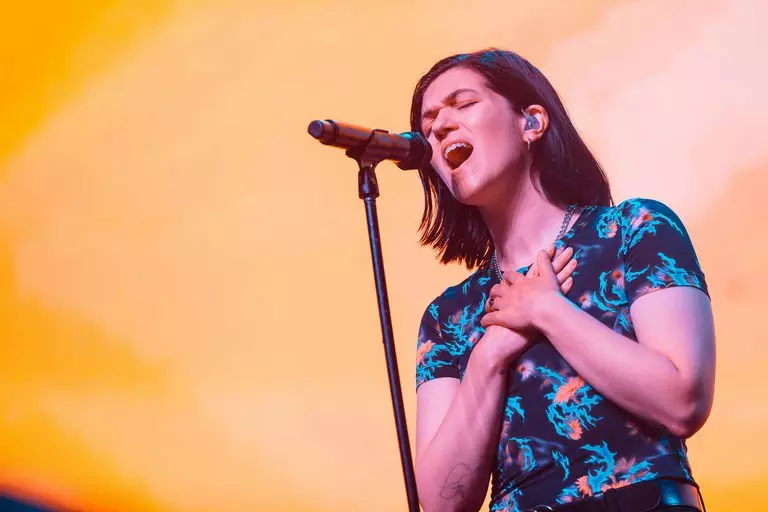
15 LGBTQIA+ Artists Performing At 2024 Summer Festivals
Inspiration Comes From Everywhere
The star and her collaborators incorporate unexpected musical influences on Megan via creative sampling. Megan Thee Stallion speeds up and flips Teena Marie's 1984 ballad "Out on a Limb" for "B.A.S." — a song she co-produced with her longtime ally LilJuMadeDaBeat. "BOA" is cleverly crafted from sounds in the first solo hit by Gwen Stefani, 2004’s "What You Waiting For?"
UGK are reunited from across the heavenly divide on the Juicy J-produced "Paper Together," with Bun B contributing new work and the late Pimp C joining in lyrical spirit. This is especially significant when considering that Juicy J produced "Intl’ Players Anthem (I Choose You)," UGK’s 2007 hit with Outkast. Juicy J also made the beats for Megan’s famous song "Hot Girl Summer."
That’s just the tip of the iceberg when it comes to samples waiting to be discovered on Megan. There are many more riffs and other musical notions that the sample bank in our brains have yet to detect.
Self-Love Is Queen
Whether she’s affirming, "I’m worthy, not worthless" on "Worthy," or literally touching herself in the auto-erotic "Down Stairs DJ" (which joins masturbation masterpieces like Divinyls’ "I Touch Myself" and Tweet’s "Oops"), Megan is grounded in songs that promote self-love as the best kind of love.
She does admit that this is sometimes a challenge to embody, as when she talks about lingering depression on "Moody Girl." But the album generally moves towards the light.
She Loves Japan
One of the big surprises on Megan is that she raps in two languages. She rhymes beautifully in Japanese on "Mamushi" with Yuki Chiba, a seasoned rapper from Japan who is influenced by the Southern swag. (Just take a look at the Memphis moves and Houston rhyme schemes of his viral song "Team Tomodachi.")
On "Otaku Hot Girl," she raps about the manga series "Naruto" and drops other anime references to show her love of Japanese pop culture.
Learn more: 10 Neo J-Pop Artists Breaking The Mold In 2024: Fujii Kaze, Kenshi Yonezu & Others
Megan's Game Is Tight
Megan is the first album to be released on Megan Thee Stallion’s own label. It follows her split from 1501 Certified Entertainment, a record label with which she was engaged in a protracted and ugly legal battle for earnings.
She now has the muscle of the major label Warner Brothers as a partner for her independent venture, Hot Girl Productions. She also recorded an Amazon Original song called "It’s Prime Day" for a commercial, as well as an exclusive Amazon edition of Megan.
It’s safe to say that this album represents a new level of business freedom and acumen for Megan Thee Stallion.
PRIDE & Black Music Month: Celebrating LGBTQIA+ & Black Voices

Celebrating 30 Years Of Essence Fest: How New Orleans & Multi-Generational, Diasporic Talent Create The "Super Bowl Of Culture"

Celebrating Missy Elliott: How The Icon Changed The Sound, Look & Language Of Hip-Hop

Tekno Talks New Music, Touring America & His "Elden Ring" Obsession

5 LGBTQIA+ Record Labels To Check Out: Get Better Records, So Fierce! And Others

Celebrate 40 Years Of Def Jam With 15 Albums That Show Its Influence & Legacy
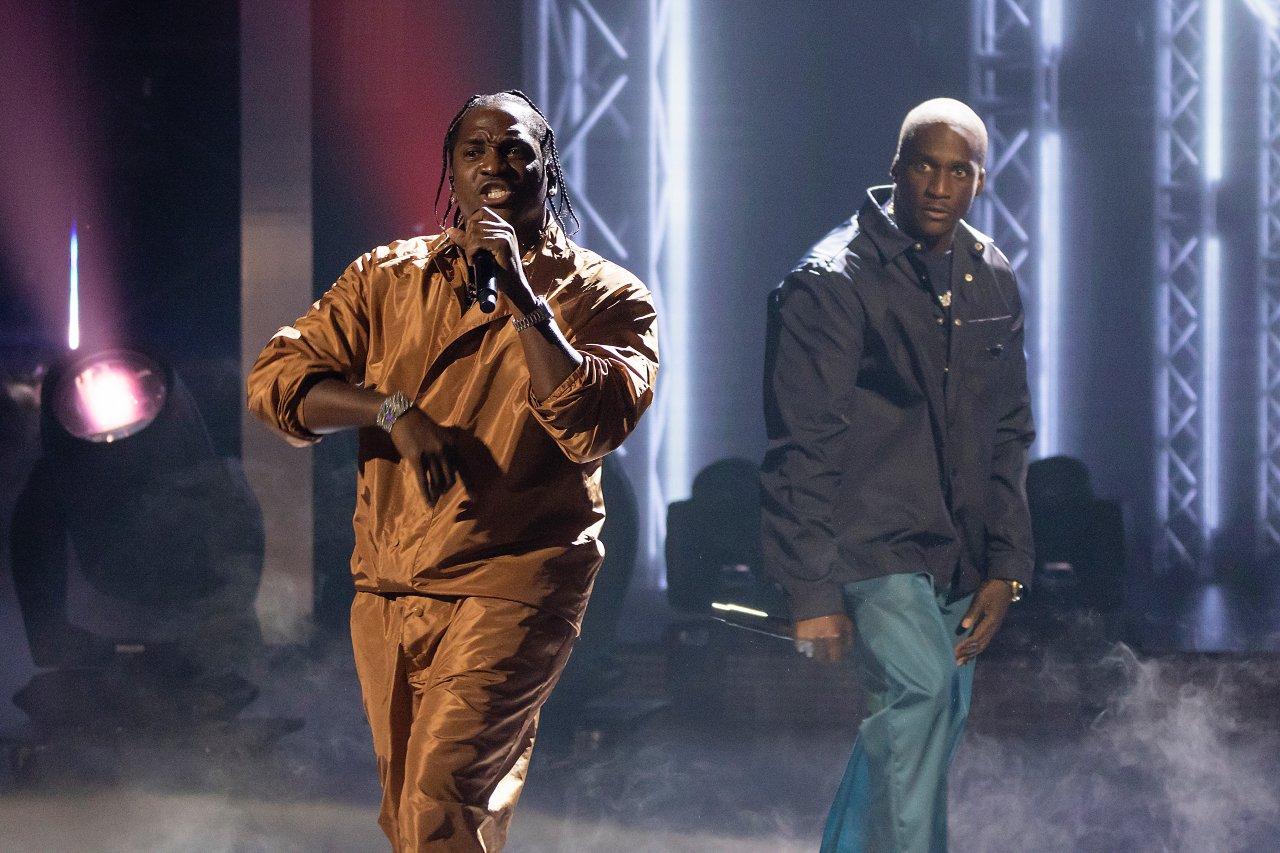
Photo: Terence Rushin/Getty Images
news
Everything We Know About Clipse's First Album In 15 Years: Pusha T And Malice Rise Again
While there's no title or release date for the new Clipse album, brothers Pusha T and Malice have teased the essence of the project, including a preview of their first new song, "Birds Don’t Sing," since 2009.
Legendary Virginia Beach rap duo Clipse have mostly been on ice since 2009's Til the Casket Drops — and that decade and a half off ends now.
The duo, composed of brothers and rap phenoms Pusha T and Malice, is back with a new, John-Legend-featuring song, "Birds Don't Sing," from a reunion project whose title has yet to be disclosed. Listen to a preview of the new song, their first new track as the Clipse since 2009, below.
It's bracing to hear purveyors of witty, sneakily profound coke raps get real about the deaths of their parents: "Lost in emotion, mama's youngest / Tryna navigate life without my compass," King Push raps at the outset. "Some experience death and feel numbness / But not me, I felt it all and couldn't function.”
It only gets realer from there: "You told me that you loved me, it was all in your tone / 'I love my two sons' was the code to your phone," Malice raps in his verse. If "Birds Don't Sing" is any indication, Clipse's first album in forever will be illuminating indeed.
We don't know much about the "Grindin'" hitmakers' reunion album, other than what Pusha T and Malice revealed in a wide-ranging Vulture interview. But for hip-hop fans, the breadcrumbs they dropped are enticing indeed.
It Will Reflect The Clipse's Maturation
Pusha T is vocal about hating the Pharrell-produced Til The Casket Drops, which has always left their story hanging. They seem to be all in on this LP — one that's designed on their own terms.
"I think the album shows the supreme maturation of a rap duo," said Push. "I think this is where you get the difference between taste and filler. This music is curated. This is a high taste-level piece of work.
"You can only have that level of taste when you have the fundamentals down to a science," he continued. "I think it's been definitely missing. Then there's the competitive aspect." Added Malice: "This is smart basketball. It's fundamentals."
Read more: For The Record: How Clipse's Lord Willin' Established Virginia's Foothold In Rap
Pharrell Williams Produced The Entire Album
Despite Pusha T's reservations about Til The Casket Drops, Pharrell Williams has been an integral part of the Clipse's operation since the beginning — and he returns to produce the new project.
"Pharrell producing everything is also an ode to the type of music and the type of albums we want to make," he added. "We still want to make full bodies of work. These are movies, man. These aren't just songs. This isn't just a collection of joints we went in and banged out."
Maturation Doesn't Mean Abandoning Coke Raps
As Pusha T points out in the interview — yes, they rap about selling coke, but to reduce it to that is to miss the point entirely.
"There's no way that you can listen to that level of storytelling and experience and just walk away just saying 'That's coke rap.'" Malice says. "If you just want to say that it's just crack rap, then you can't even assess what's really being said or what's going on."
Indeed, what the Clipse staked their claim on isn't off the table. In fact, it's lined up and ready.
Get Ready For A Bona Fide Clipse Era
As Pusha T stresses, this Clipse revisitation will come from multiple directions: "Appearances, touring, and a rap album of the year" are coming down the pike.
As more information about the forthcoming Clipse album flows in, keep GRAMMY.com bookmarked so you know the details — as these fraternal MCs join forces once more.
Latest Rap News & Music

5 Rising L.A. Rappers To Know: Jayson Cash, 310babii & More

6 Takeaways From Megan Thee Stallion's 'Megan': Snakes, Shots & Self-Assurance

Celebrate 40 Years Of Def Jam With 15 Albums That Show Its Influence & Legacy
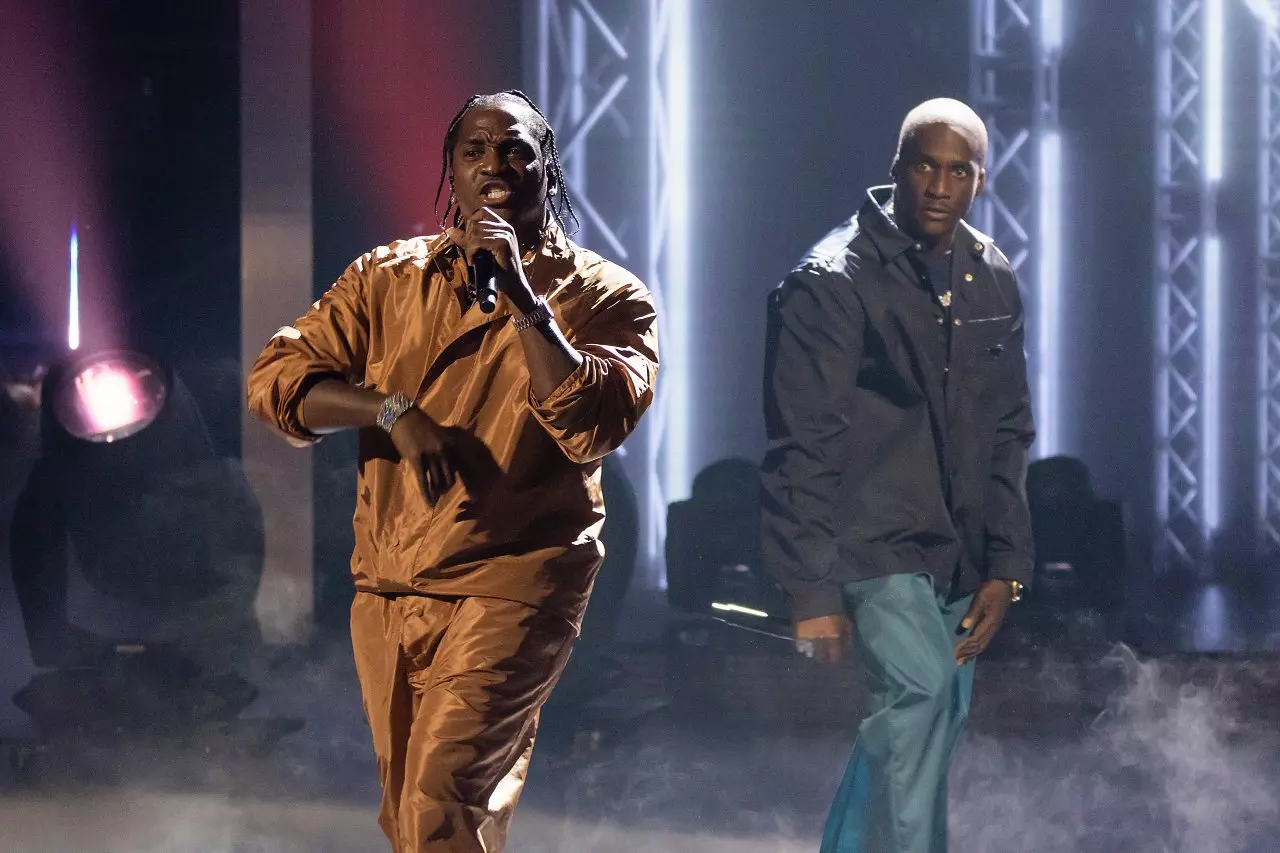
Everything We Know About Clipse's First Album In 15 Years: Pusha T And Malice Rise Again

5 Iconic Moments From Megan Thee Stallion's Houston Hometown Shows
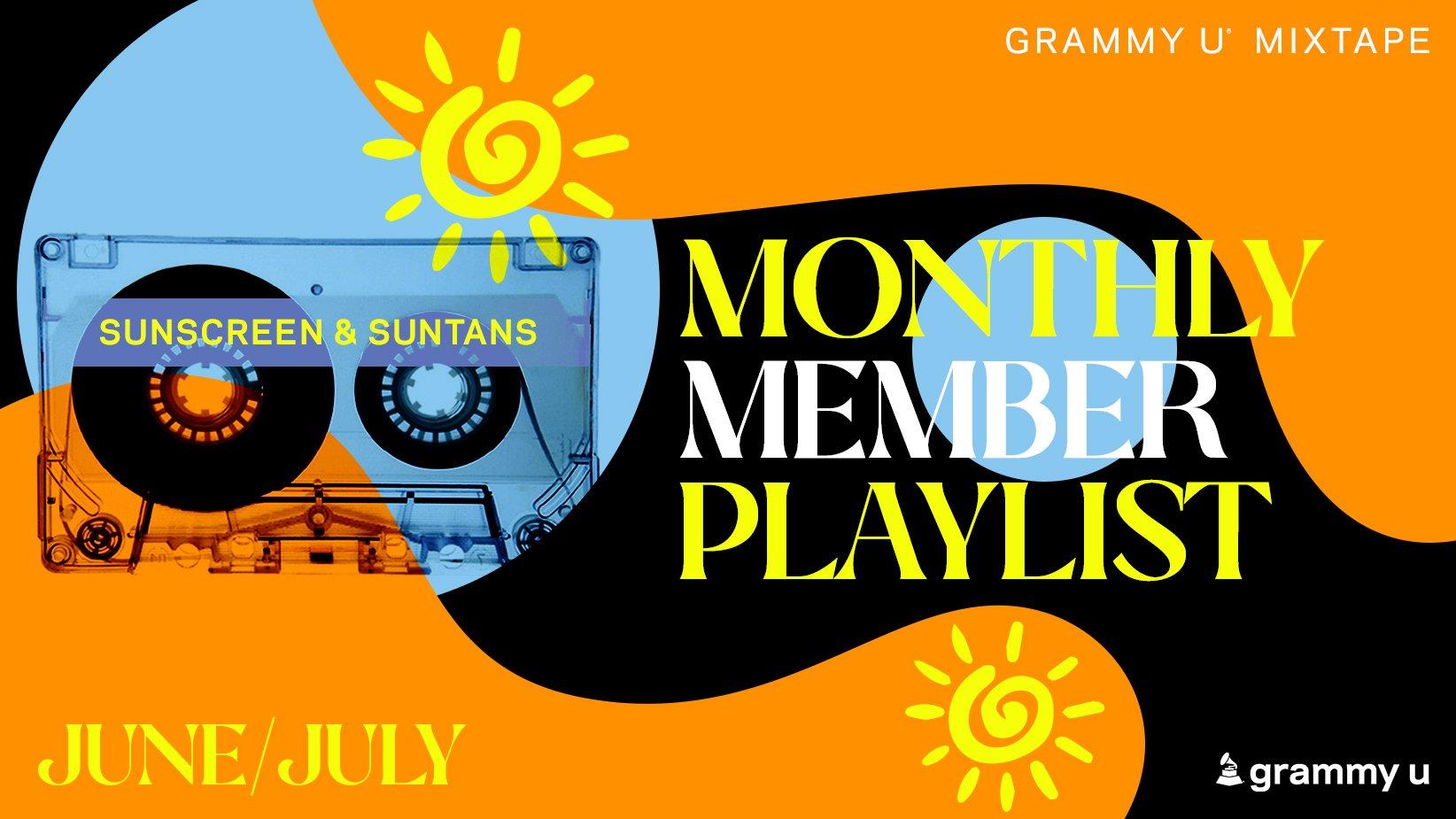
news
Press Play On GRAMMY U Mixtape: Sunscreen & Suntans Monthly Member Playlist
The GRAMMY U Mixtape is a monthly, genre-spanning playlist to quench your thirst for new tunes, all from our talented members. This summer playlist is a vibrant mix of bubblegum pop and soulful tunes that will have you bopping as you soak up the sun.
Did you know that among all GRAMMY U members, songwriting and performance are some of the most sought after fields of study? This playlist dedicates a space to hear what these members are creating today!
The GRAMMY U Mixtape, now available for your listening pleasure, highlights the creations and fresh ideas that members are bringing to this industry directly on the Recording Academy's Spotify, Apple Music, and Amazon Music pages. Our goal is to celebrate GRAMMY U members, as well as the time and effort they put into making original music — from the songwriting process to the final production of the track.
Each month, we accept submissions and feature 15 to 25 songs that match each month’s theme. This summer playlist is vibrant mix of bubblegum pop and soulful tunes that will have you bopping and singing as you soak up the sun. So, what’s stopping you? Press play on GRAMMY U’s Mixtape and listen now on Spotify, Apple Music and Amazon Music.
Want to be featured on the next playlist? Submit your songs today! We are currently accepting submissions for songs of all genres for consideration for our next playlist. Whether you write pop, rock, hip-hop, jazz, or classical, we want to hear from you. Music must be written and/or produced by the member (an original song) and you must be able to submit a Spotify, Apple Music and/or Amazon Music link to the song. Artists must be a GRAMMY U member to submit.
About GRAMMY U:
GRAMMY U is a program that connects aspiring professionals and creatives ages 18-29 with the music industry's brightest and most talented minds. We provide a community for emerging professionals and creatives in addition to various opportunities and tools necessary to start a career in music. Throughout the program year, events and initiatives touch on all facets of the industry, including business, technology, and the creative process.
As part of the Recording Academy's mission to ensure the recorded arts remain a thriving part of our shared cultural heritage, GRAMMY U establishes the necessary foundation for music’s next generation to flourish.
Not a member, but want to submit to our playlist? Apply for GRAMMY U Membership here.
Former GRAMMY U Reps Heather Howard, Sophie Griffiths and Samantha Kopec contributed to this article.
15 Must-Hear Albums In May 2024: Dua Lipa, Billie Eilish, Sia, Zayn & More
